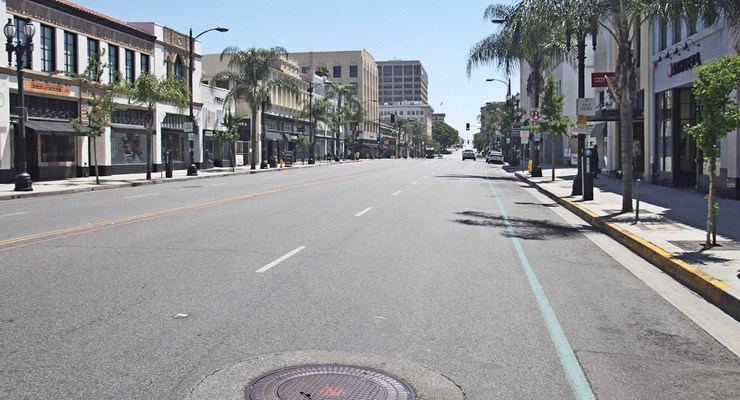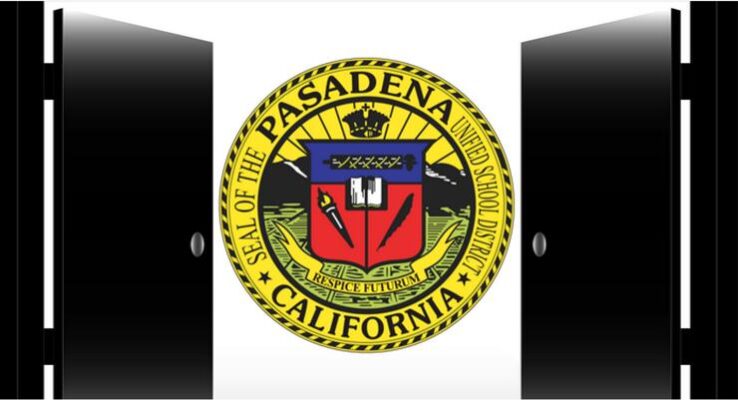 The year-long celebration of Pasadena Public Library’s 130th birthday began with a Saturday bash that included a cake and a special slide show thoroughly tracing the library’s history that played while Theatre American sang through the decades.
The year-long celebration of Pasadena Public Library’s 130th birthday began with a Saturday bash that included a cake and a special slide show thoroughly tracing the library’s history that played while Theatre American sang through the decades.
“Public libraries are doing today what we have always done, which is to be the center of an active learning environment for the community. The purpose of libraries haven’t changed, the esteem for libraries hasn’t changed, what’s changed is the format,†Director of Pasadena Public Library Jan Sanders said.
Around 100 people came out to celebrate Pasadena Library’s birthday kick-off event including Mayor Bill Bogaard, Congresswoman Judy Chu, Senator Carol Lui and Assemblyman Chris Holden who gave the library special recognition.
“The library is more vibrant and impactful today then its ever been and its always been a pillar of Pasadena. Let us not only celebrate the joy of reading, but the worlds that it opens up for each of us as we enter into a realm of mystery, fantasy, adventure, discovery the moment we open a book,†Bogaard said.
Special collector’s bookmarks will help tell the story of the library by the decades, which each decade decked in different pastel colors featuring the historic events such as who the first appointed librarian of Pasadena Library was. A new decade will be released each month throughout the year with only 1000 of each of the 14 bookmarks.
A sampling of the first bookmark portrays the 1880-1889 time period: “Dickens’ Pickwick Papers and the Works of William Shakespeare were the first books entered on the library records. The first 329 volumes donated by citizens are mostly classics, government documents and treatises on the evils of tobacco and liquor.â€
Access to information for people all across the spectrum has been essential in Pasadena even before the city became fully incorporated. In more recent years, Pasadena residents have voted unprecedentedly high three times for the special library tax to keep up operations.
Since the library opened 130 years ago, significant evolution of information exchange has occurred. While only a small amount of change happened in the hundreds of years between the invention of the printing press in the 1400s and the first bookmobiles in the 1850, from 1951 until now the changes have been exponential.
From tapes to CDs, videotapes to self-serve DVD stations, and now almost all information is online accessible from laptops, tablets and smartphones.
“When you think about reading, originally they painted on the walls in a cave, then they moved to papyrus, then they moved to printed pages in hardback books, then they moved to paperback, then they moved to e-books. In terms of reading, it has evolved in mechanism, but the premise of reading has not changed because everyone reads to discover, to learn and to gain knowledge,†Pasadena Public Library Communications Director Catherine Haskett Hany said.
Sanders, a renowned librarian for being at the forefront of adapting to technological advances, remembers being a librarian in the sixties when people were saying the public library would be dead because people could buy paperbacks for such a low cost.
“Yes you can buy electronic books, yes you can get information on the Internet, yes you can do all these things, but does that mean your public library goes away? No it means your public library adapts,†Sanders said.
The biggest change with technology is that people want to be able to access the library databases 24 hours a day, seven days a week. People want to do their research at 2 a.m. and do not stop at 9 o’clock just because the library closes.
However, the community of Pasadena is also dedicated to the concept of neighborhood branches, a bricks and mortar building that purchase over $1 million worth of reading materials every year.
So how has the Pasadena Public Library adapted? By providing services, programs, and meeting spaces, Sanders says her team is working to make the 10 branches the hub of the community.
In the age where many people have an “office†wherever the laptop transports to, many people come in and use the libraries space, particularly the Central Library where there is a coffee shop and space to work. The libraries are creating space for big public lectures or community programs, comfortable places for people to come in to read, and ensuring adequate Wi-Fi.
“Because we have 10 sites, one within a mile of every resident, we really are community centers where maybe there isn’t another community center,†Hany said. “Were using technology to better serve our audience, trying to keep relevant, current with what’s going on. We’re on facebook, social media, flickr, twitter, we have a blog. We try to stay as relevant and vital in people’s lives as we once were 130 years ago.â€
The Pasadena Public Library was one of the first in the State of California to release an app to easily download e-books for phones from the cloud.
“You can go to the i-Pad from your phone and continue the same book. It’s seamless. And you don’t have to worry about due dates because it automatically disappears,†Hany said.
Many people have forgotten about the real role of a librarian—a person who can help with research of any topic. The library now offers a service where people can “Book a librarian†to do one-on-one help on any subject from beginning a business to applying for government services.
“There’s so much more that your library card does for you that you don’t realize. We’re the best kept secret. We have such a wealth of services available to the public and we want to share them with everyone,†Hany said.
A recent Pew Study released in December of 2013 reported that more than half of all Americans have used a library in the past year and most say that libraries are very important to their communities.
“Certainly libraries are relevant. People are not sure what they want libraries to look like, they want it to be online, 24-hours a day, they’re not exactly sure what they want to use a library for, but they know they want to use one,†Sanders said.
The study also revealed that ninety percent of Americans said closing their local library would have an impact on their community. Sanders would take that a step further and say that public libraries are absolutely necessary even going into the 21st century.
“Public libraries are mandatory for the operation of a democratic society. You have to be able to research and explore on your own for a democracy to survive. As long as we live in a democratic society were going to need public libraries and public education and public curiosity,†Sanders said.
Several events will be featured throughout the year to continue the 130 years of Reading celebration such as author events, “One City One Story,†and a concluding event. All events are free and open to the public.
For more information, contact Catherine Haskett Hany at (626) 744-4207 or chany@cityofpasadena.net. Also visit http://www.ci.pasadena.ca.us/library/.



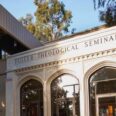
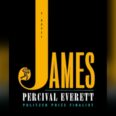

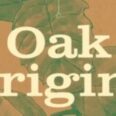



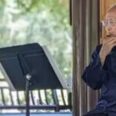



 0 comments
0 comments
